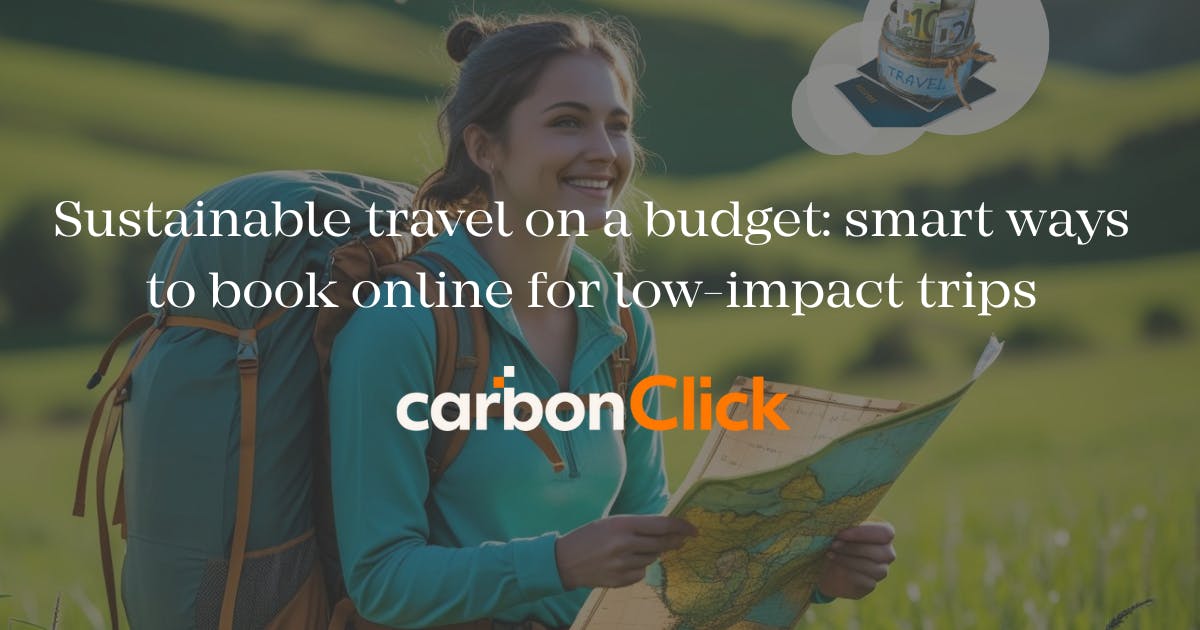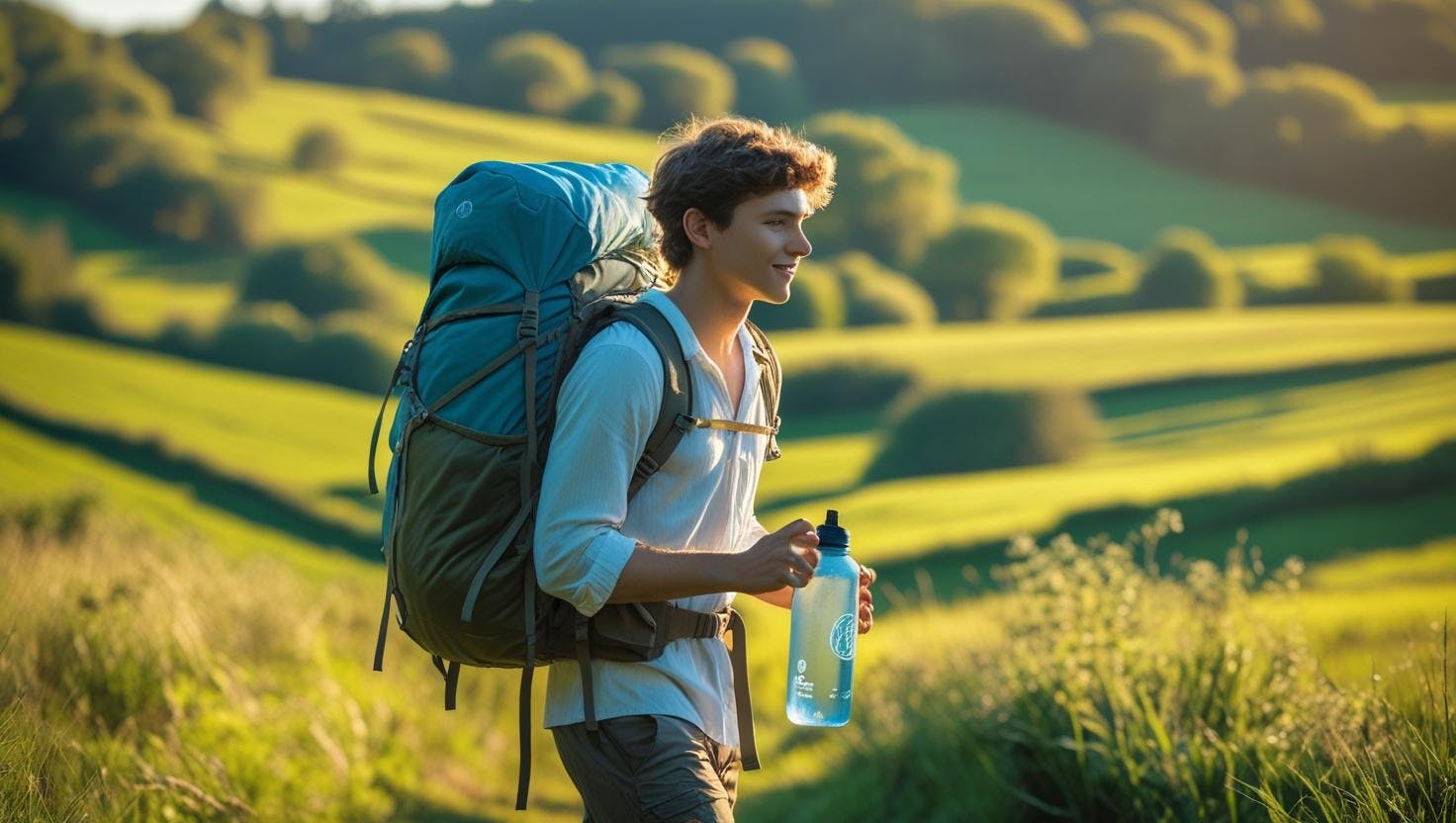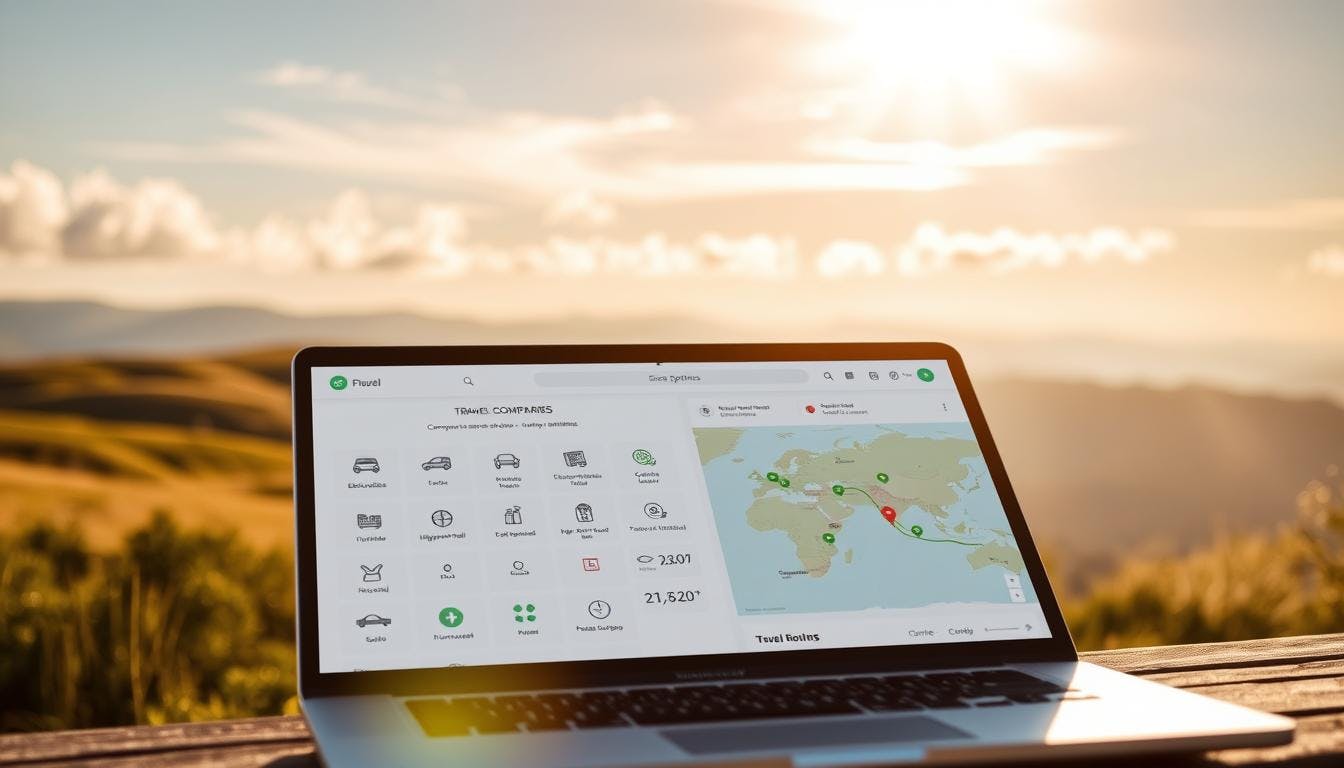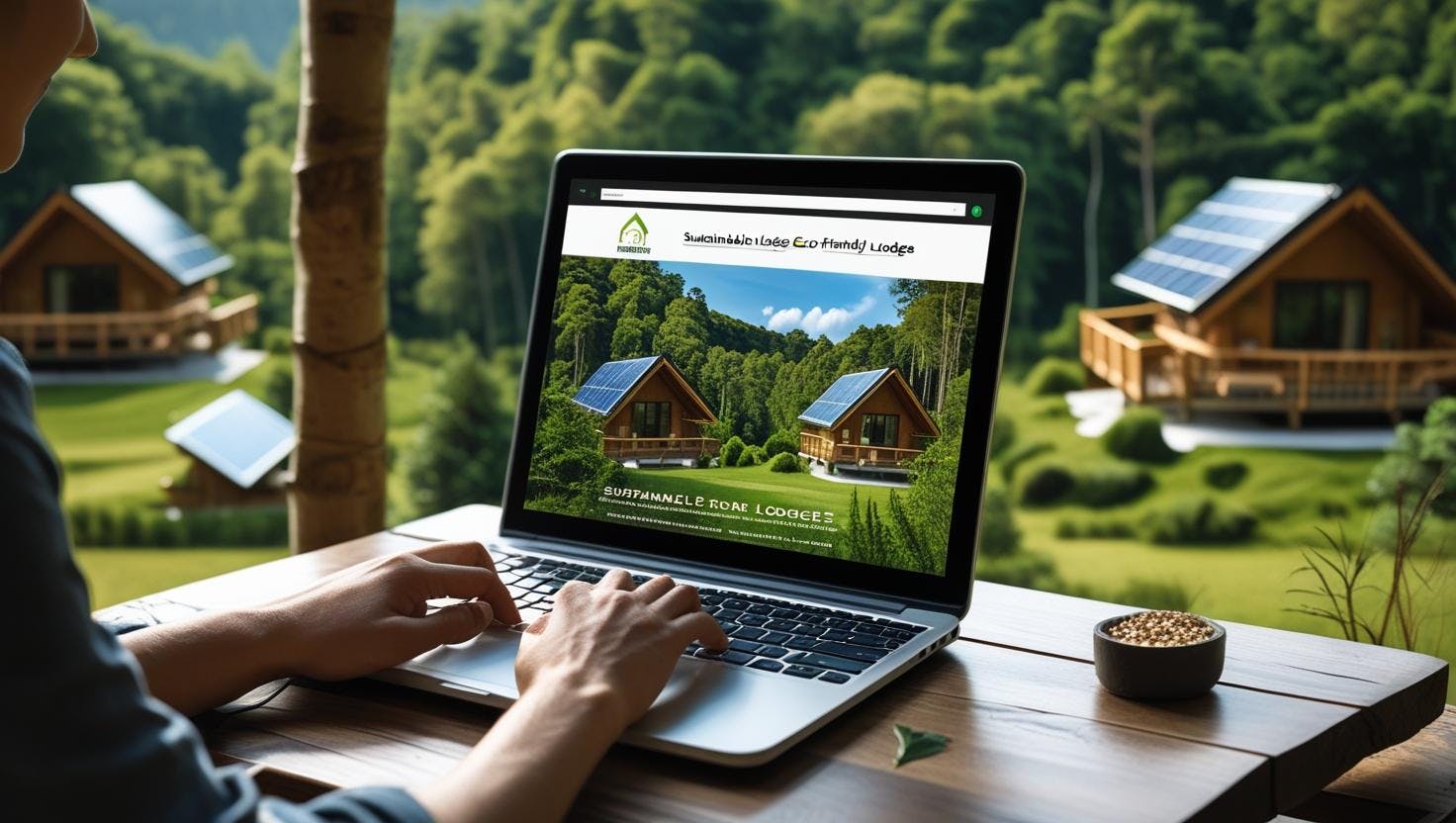Sign up. Be inspired. Get clicking.
Sustainable travel on a budget: smart ways to book online for low-impact trips
Due to the increase in nature-orientated travellers, there has been an increase in budget-friendly sustainable travel. You can plan trips that are beneficial to the environment without spending a lot of money. You only need to know the right ways to do things. More and more people want to plan ecologically compatible trips that don't cost a lot of money. This means looking for cheap places to stay, sustainable ways to get around, and fun things to do that don't hurt the environment. Below are a few points to note while we explore low-cost sustainable possibilities in travel.
Key points
- Plan ahead to find cheap, verdant places to stay.
- Choose transport options that are good for the environment.
- Pick activities that help the people in your area.
- Choose online booking sites that have options that are good for the environment.
- Be open to changing your travel dates to save money.

What does it mean to travel sustainably?
In an ever-evolving world, people will always make choices that suit them best, and as a result, certain strategies have been set up to ensure they live more life and leave more life behind, which revolves around the phrase 'sustainable travelling' on a low budget.
What is sustainable travel?
When you travel sustainably, you pick options that are beneficial for the planet. This means choosing places to stay and ways to get there that are not harmful to the ecosystem. It's also comprises caring for the culture and the people who live in such environments. You can lower your carbon footprint by travelling in a way that is beneficial for the environment. Our behaviour helps protect natural resources for people who come after us.
Why it's important to make ecologically compatible choices
Making ecologically compatible choices is important for keeping the beauty and resources of places. Travelling in a way that is good for the environment helps the local economy and protects cultural sites. It also makes your trip more real and important. For instance, staying in locally owned hotels and eating at family-run restaurants helps the community. It also helps you connect more deeply with the culture. Also, there are more deals and packages for sustainable travel now, which makes it easier for everyone.

The good things about travelling on a budget
Travelling sustainably on a low budget is beneficial for both the planet and your wallet. You can have a great trip and help the environment without spending a lot of money if you make the right choices.
Money savings
You can save money by travelling in a way that doesn't hurt the environment. Taking the bus or train instead of a car or taxi saves money. Staying in low-impact places like hostels can also help you save money. A study found that people who use public transport save about $500 each time they ride. Making your own meals instead of eating out can also save you a lot of money, which is great for long trips.
Effects on the environment
One of the areas of emphasis is on environmentally sustained travel, which involves making low-impact choices while choosing means of transportation. so as we choose low-budget means of transportation, we could look out for whether these low-budget transportation also favours the ecological patterns of the environment at large. For example, taking a walk via a walkable distance or cycling could help reduce carbon exposures and impact on the environment, and they are also on a low budget. This depicts the following environmental benefits which include:
- Less carbon dioxide released by transportation
- Ecologically compatible lodges use less energy.
- Helping local communities through thrive through nature-supportive tourism
Ways to get involved in other cultures
If you travel sustainably on a budget, you can learn more about the culture of the places you visit. Staying in places owned by locals and eating at local restaurants is a great way to get to know the area. Staying in a guesthouse run by a family, for example, can teach you about the culture of the area. Travelling on a budget also gives you more chances to meet locals, which makes your trip more meaningful.

How to find cheap, ecologically supportive places to stay
It's not as hard as you might think to find places to stay that are cheap and good for the environment. Many online tools and tips can help with sustainable travel, which is becoming more popular. You can find places that fit your nature-oriented values and don't cost a lot.
Hotels and hostels that are good for the environment
A lot of hotels and hostels today want to be ecologically supportive. They have features and practices that are good for the environment. You can find these places by using filters on booking sites. Hostelworld, for instance, has a filter for "Sustainable Hostels." The "Travel Sustainable" badge is on Booking.com. These tools help you find businesses that care about the environment. When picking a place, look for lights that save energy, and also ways to cut down on waste, meanwhile, purchasing materials that are made nearby. These choices are good for the environment and can also save you money.
Different places to stay
You could also stay in an eco-lodge or go camping. Eco-lodges are made to be environmentally compatible and give you a chance to feel nature, and they use materials that are good for the environment. Furthermore, camping and glamping are both cheap and sustainable ways to see the outdoors.
Using sites that compare
It's easy to find low-impact, cheap places to stay on comparison sites. You can sort by eco-friendliness on sites like Booking.com, Hostelworld, and Airbnb. Find badges or labels that show how ecologically supportive a place is. Also, check out what other people who have travelled say. You can learn about a place's efforts to be sustainable and its quality from their reviews. You can have a green, cheap trip with these tips and tools. You won't have to give up your green values or comfort.
Smart ways to book travel that is good for the environment
When you travel, you can save money and help the planet by making smart choices. You can have a great trip without spending too much money or hurting the environment if you use smart booking tips. Below are basic features of smart booking.
Dates of travel that are flexible
If you can be flexible with your travel dates, you can save money. The prices of flights and places to stay change a lot depending on the day and the time of the year.
- Usually, travelling during the week is less expensive than on the weekends.
- You can save a lot of money by not going on holidays or during busy times.
- Tools for comparing fares can help you find the best days to fly.
Times to travel when it's not busy
You could keep places from getting too crowded when you travel at less busy times and also save money. This approach helps sustain tourism, allowing you to have a more authentic experience while encountering fewer people.
Using reward programs
A lot of travel companies, like hotels and airlines, have reward programmes. These can help you save money on your trips.
- Join loyalty programs to get points or miles.
- Use travel credit cards for everyday purchases to get points.
You can use your points to get things like flights, hotels, or better rooms.
You can travel affordably and sustainably by combining flexible travel dates, visits during off-peak times, and reward programmes. These tips will help you save money and help the tourism industry be more environmentally compatible.

Eating well on a budget
You can eat sustainably on a budget if you make smart choices. What you eat while travelling can hurt the environment and businesses in the area.
Eating sustainably in your area
For sustainable eating, organic and local foods lead the way, and these enhance nature-orientated living in that particular area. Find stores that buy from farmers in your area. This promotes vegan farming and lets you try the food and drink of the local area you find yourself in. Farm-to-table restaurants and places with fresh seafood are two of the best places to eat vegan diets.
Making your own food
Making your own food is another nature-focused lifestyle, and it is also dependent on how you make it. Meanwhile, many nature-focused restaurants offer sustainable options for preparing nature-based dishes. You can choose local ingredients and cut down on waste by making your own food.
- Go to local markets to get ingredients and try new foods.
Food markets that are good for your budget
It's great to find food markets that are cheap. They serve fresh, local food and meals that are ready to eat.
- Please explore the street food options available in your area.
- Go to farmers' markets to try out local food.
- Choose food markets that have options that are beneficial for the environment and come from nearby farms.

Making plans for verdant activities
For travel to be sustainable, it's important to do things that are good for the environment. It helps the earth and makes travel better. Travellers can help local businesses and cut down on carbon emissions by choosing green activities.
Experiences based on nature
Travellers can connect with nature through activities that are based on it. You can hike, watch birds, or go to national parks. These things are good for nature and make great memories for travellers.
- Hiking and trekking in protected areas
- Watching wildlife, like going on a safari or birdwatching
- Going to national parks and other protected areas
Travellers see the beauty of nature and help protect it by enjoying it. Most of these things are free or cheap, which makes them easy for people on a budget.
Getting involved in the local community
It is important for sustainable travel to connect with people in the area. You can go to local festivals, learn how to do crafts, or stay with families. These things make travel more interesting and help local businesses.
- Taking part in local cultural events and festivals
- Taking classes in traditional crafts or cooking
- Homestay programs that let travellers stay with families in their homes
Talking to people from the area encourages cultural exchange and keeps traditions alive. It also helps the economies of the places where it happens.
Things to do that don't cost much
Finding cheap things to do is important if you want to travel on a budget. A lot of verdant places are free or cheap. You can go to markets or parks or take tours on your own.
- Going to local markets and food stalls
- Taking a look at public parks and gardens
- Going on self-guided walking tours or using free audio guides
Travellers can enjoy their trip without spending a lot of money by choosing cheap attractions. This makes it easier for everyone to travel in a way that is good for the environment.

Developing a sustainable travel schedule
Finding the ideal balance is key to organising an enjoyable and environmentally compatible trip. Activities, relaxation, and cultural acculturation must all be balanced. In this manner, you can take advantage of your sustainable travel offers and book accommodations at reasonable prices.
The balancing act
You can explore and unwind simultaneously with a well-thought-out plan. For a fantastic trip, this balance is essential. It enables you to stop and experience local culture.
Immersion in culture
Your trip will be richer if you include local culture. You can accomplish this by going to markets, participating in neighbourhood gatherings, or finding secret locations where cultural activities occur which are promising and compatible with the environment. Additionally, you can stay in verdant, supportive and cost-effective accommodations while doing all of this.
Maintaining order
Organising yourself can help you reduce stress and save money. Plan your activities using public transport and reserve your verdant travel deals in advance, always keeping flexibility in mind. This simplifies and lowers the cost of your trip.

In conclusion
We can have a very sustainable travel on a low budget when we utilise the aforementioned tools, therebypromoting a healthy environment, planet-sustaining practices and low-impact journeys in the long run. Propagating such means of travels will prove a global point that verdant lifestyle is not always expensive; rather, it is made possible by having the right knowledge and making the best of every good opportunity within our grasp
17 South Street
Auckland 1010
New Zealand
info@carbonclick.com- -
- X
Subscribe now to stay up to date with CarbonClick, carbon offsetting and climate action.
By signing up you agree to our Privacy Policy.


